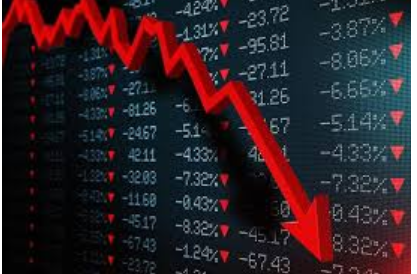I Asien faldt de fleste aktier i dag, og analytikere venter, at aktierne også vil falde i Europa på grund af de stadig højere energipriser. De tre store indeks i USA havde i går store fald. Også det blev begrundet i energipriserne og den stigende inflation. I denne uge ventes en række data, der peger på øget inflation. I Storbritannien er der forventninger om en forhøjelse af centralbankrenten. I Kina griber præsident Xi Jinping ind over for bankerne på grund af deres kraftige engagement med de mest ekspansive private giganter.
Uddrag fra Fidelity/Reuters:
Stocks to Tumble as Energy Crunch Stokes Inflation Fears
Fears about elevated inflation stoked by spiralling energy costs will likely hit European markets on Tuesday. In Asia, most shares dropped, the safe-haven dollar gained, as did gold, while oil futures stabilized.
European shares face steep opening losses on Tuesday, as worries persist about slowing growth and mounting inflation, punctuated by a rally in oil prices.
On Wall Street, all three major stock indexes finished lower Monday, posting their largest one-day point drops in a week, as investors remained focused on the release of fresh inflation data and third-quarter earnings this week.
“Sentiment is fairly negative,” said Matthew Tuttle, chief executive and chief investment officer of Tuttle Capital Management. “Buyers came in and tried to rally the market and that failed miserably.”
In addition to the prospect of the Federal Reserve tapering bond purchases and then raising rates down the road, ” there are a whole bunch of inflation numbers this week and people aren’t expecting that to be good news in any way, shape or form.” Moreover, the S&P 500 is below its 50-day moving average and “if you’re trying to sit out there and be a buyer, there’s not a whole lot to grab onto.”
Stocks to Watch: The outlook for Rio Tinto’s stock is buttressed by strong base-metals prices as iron ore, its main product, weakens in price, said JPMorgan. Rio Tinto is net cash and offers a dividend yield above 10%, JPM said. “We believe investors will be well rewarded owning the stock, particularly once we see China growth sentiment improve [ likely after the Winter Olympics in February 2022].”
Still, the bank trimmed its target on Rio Tinto’s Australian stock to A$144 from A$150, after downgrading its iron-ore price forecasts but kept an overweight recommendation.
Soaring expectations of a looming interest rate rise in the U.K. will widen the yield gap, or spread, between 10-year gilts and the equivalent German Bund by 20 basis points, said Saxo Bank.
“We expect this spread to widen [to] as much as 150bps as the market prepares for the BOE’s interest rate hikes,” said Saxo Bank’s fixed income strategist Althea Spinozzi.
By the end of the year, however, the 10-year Gilt-Bund spread is likely to narrow to current levels of about 130 bps as inflation expectations, the German election aftermath and higher yields in the U.S. force Bund yields higher, Spinozzi added.
Traders are likely to pay special attention to this week’s U.K. data releases as higher interest rate expectations deepen the selloff in gilts.
“The British economy is slowing down while inflation expectations rise due to supply chain disruptions and staff shortages,” said Spinozzi.
Crude futures were little changed in Asia after their strong gains on Monday which saw U.S. oil book its first settlement above $80 in almost seven years and Brent hit its highest settle value in three years.
Increasing tightness in the physical market is likely to put further upward pressure on prices in the fourth quarter, said ANZ, which has raised its short-term target for oil prices to $90.00/bbl.
JPMorgan said iron-ore prices are likely to remain under pressure, cutting its 2022 price forecast for the steelmaking commodity to $105/ton from $125/ton.
Chinese steel production has plunged following a directive from Beijing that 2021 output be similar to 2020. There could be some support for prices in the first quarter of 2022 as policy easing improves activity in China’s steel industry, said JPM.
China:
Xi Jinping Scrutinizes Chinese Financial Institutions’ Ties With Private Firms
Chinese President Xi Jinping is zeroing in on the ties that China’s state banks and other financial stalwarts have developed with big private-sector players, expanding his push to curb capitalist forces in the economy.
Mr. Xi, who started his campaign late last year with a regulatory assault on private technology giants, is launching a sweeping round of inspections of financial institutions. According to people with knowledge of the plan, the inspections, announced in September with few details, focus on whether state-owned banks, investment funds and financial regulators have become too chummy with private firms, especially some that have recently landed in Beijing’s crosshairs, such as property giant China Evergrande Group, ride-hailing company Didi Global Inc. and financial-technology firm Ant Group.









